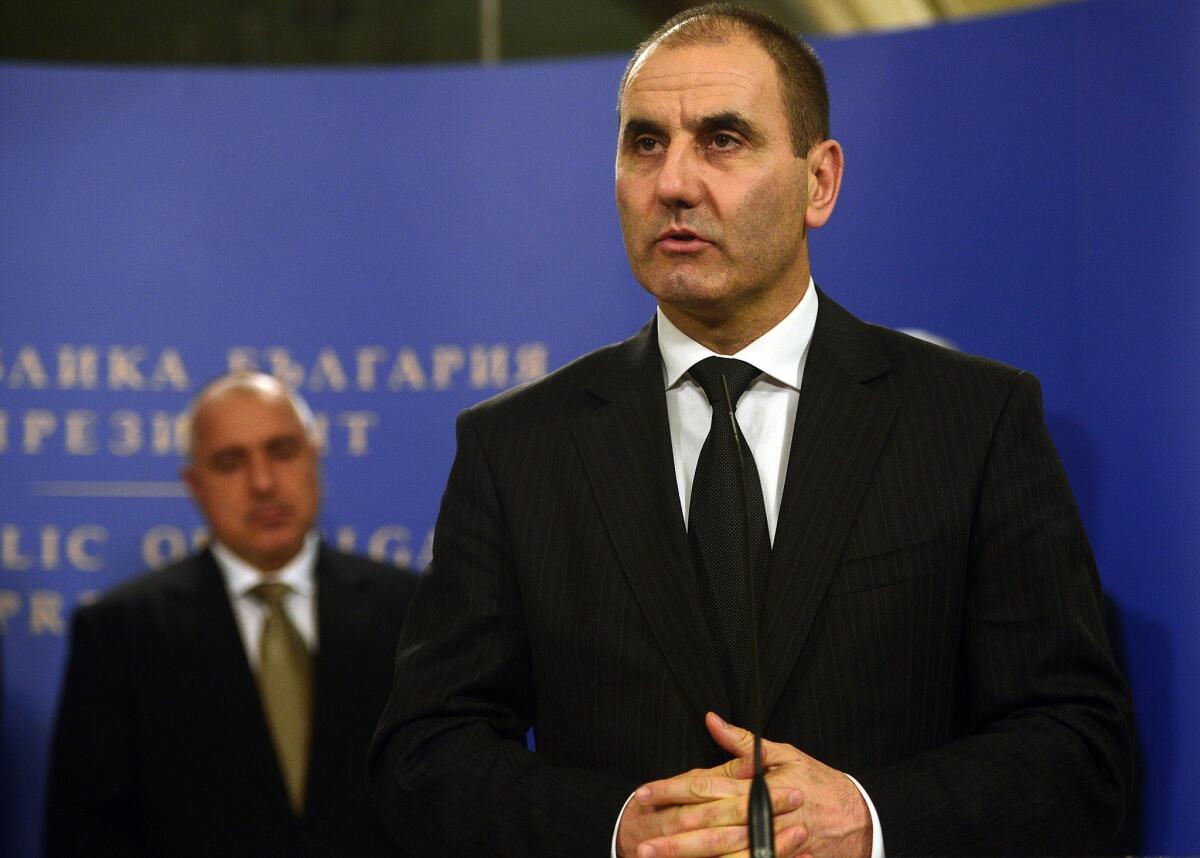Bulgarian probe links Hezbollah to Israeli tourist bus attack

Two of the suspects in a deadly July attack on a bus filled with Israeli tourists are believed to have been part of “the militant wing of Hezbollah,” the Bulgarian interior minister said Tuesday, according to news reports.
Hezbollah also appears to have financed the attack last summer in the Bulgarian city of Burgas, Tsvetan Tsvetanov told reporters.
The announcement is the first major revelation in the case aired by Bulgarian investigators since the bombing killed five Israelis, their Bulgarian driver and the suspected bomber. Hezbollah denied any connection to the attack when it occurred.
The reported ties between the Bulgaria attack and Hezbollah are expected to put new pressure on the European Union to change its stand on the Lebanon-based militant group and political party. The EU does not consider Hezbollah a terrorist group; the U.S. and Israel do.
Israeli Prime Minister Benjamin Netanyahu, who has long blamed Hezbollah and its Iranian backers for the attack, said in a statement Tuesday that the Bulgarian findings show that “Hezbollah was directly responsible for the atrocity.” He urged the European Union to “draw the necessary conclusions as to the true character of Hezbollah.”
EU foreign policy chief Catherine Ashton said in a statement Tuesday that “the implications of the investigation need to be assessed seriously as they relate to a terrorist attack on EU soil.”
“The EU and member states will discuss the appropriate response based on all elements identified by investigators,” she said.
Tsvetanov did not mention Iran in his remarks, according to news reports. Europol Director Rob Wainwright told the Associated Press that investigators found no direct links to Iran or any terror groups affiliated with Al Qaeda.
Wainwright said the bomb was remotely detonated using a circuit board, and was not a suicide bombing as first believed, the AP reported. Investigators believe that the attacker did not intend to die, he said.
ALSO:
Mexico official says deadly Pemex blast caused by gas
Bangladesh war crimes court jails Islamic party leader for life
Ahmadinejad ally linked to human rights abuses arrested in Iran
More to Read
Sign up for Essential California
The most important California stories and recommendations in your inbox every morning.
You may occasionally receive promotional content from the Los Angeles Times.








